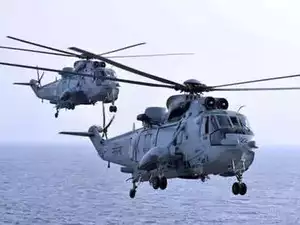By P.K.Balachandran
Colombo, January 22: Critics of the Muizzu government in the Maldives are alleging that the government’s policy of not using Indian aircraft meant for use in medical emergencies had caused the death of a 13 year old boy from the outlying Villingili Island in the Gaafu Alifu Atoll.
Meanwhile, figures of tourist arrivals in the Maldives show that there has only been a marginal decline in arrivals from India following the decision by some Indian travel agencies not to take bookings for the Maldives in the wake of the India-Maldives row over some hurtful remarks against the Indian Prime Minister Narendra Modi.
As regards the medical evacuation issue, the government had asked India to remove by March 15 the two military choppers and a Dornier aircraft donated to the Maldivian military for evacuating patients from distant islands in emergencies.
The call to remove the aircraft and its operating personnel was part of the government’s “India Out” policy.
But the death of a 13 year old boy following the government’s decision not to use the Indian aircraft has put in question the wisdom of asking the Indians to get out and not using their aircraft.
Following criticism in the social media, the Minister of Tranmsport and Civil Aviation Mohamed A Haleem, said that “Maldivian” the national carrier of the Maldives, has announced a revision in its operational procedures to prioritise emergency medical transports over scheduled flights.
Ameen took to X (formerly Twitter) to announce the policy change, saying: “Starting Saturday, changes will be implemented to Maldivian policies. If an emergency case arises, the highest priority will be given to medical transport in the flight schedule.”
He acknowledged that the previous policy, enacted a decade ago, was time-consuming in its procedure and initiation. Emergency charter flights to transport critical patients from the islands to Malé are a crucial service in the Maldives, given the geographical dispersion of the islands and the need for rapid transport to centralised medical facilities in emergencies.
President Mohamed Muizzu had earlier pledged to introduce air ambulance services starting March 1.
Critics alleged that the administration had refused to utilise aircraft provided by the Indian government—two navy helicopters and a Dornier aircraft.
However, the government said that following the recent revision of the policy on emergency medical transports, the state carrier Maldivian has successfully conducted three medical transport flights within the past 24 hours. Among the patients transported to Malé for advanced treatment was an individual from Fuvahmulah City who had been severely injured in a road accident and was on ventilator support.
Tourism After Indian Boycott
Following calls for a boycott of the Maldives on social media in India, the Maldives Association of Travel Agents and Tour Operators (MATATO) surveyed its repercussions. The Hotel Reservations and Impact Study indicated “limited cancellations and minimal slowdown following a recent incident.”
According to www.maldivesrepublic.mv India has been the primary source market for the Maldives since 2020, undergoing significant expansion over the past half-decade.
But from 2022 to 2023, the Maldives observed a contraction in the Indian market, with the number of arrivals decreasing from 241,369 to 209,198, signifying a 13.3 percent decline. Notwithstanding this downturn, India persevered in its role as the predominant source market in 2023, contributing a total of 209,198 tourists.
Russia was a close second, with 209,146 tourists, a marginal difference of 52.
It is noteworthy that these two markets’ have distinct tourist profiles. Like the European source markets, tourists from Russia were characterised by extended stays and a propensity for higher expenditure. In contrast, Indian tourists exhibited more budget-conscious behaviour, typically opting for shorter stays.
This dichotomy underscores the Maldives’ ability to cater to diverse tourist preferences and budgets, the Maldives Republic website said.
END





























































